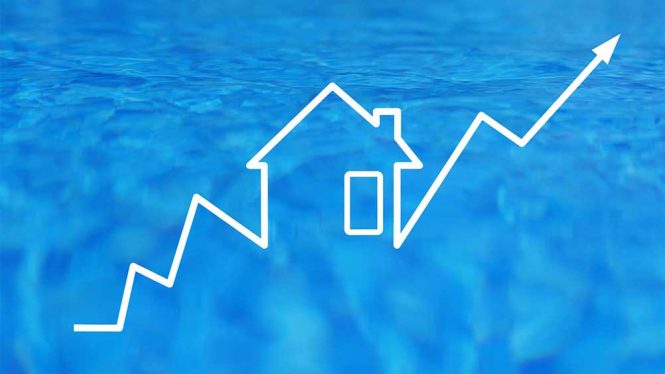

Does a swimming pool add value to a home? This is a critical query for homeowners contemplating adding a swimming pool or buyers considering a property with one. A well-designed and maintained pool can dramatically boost a home’s appeal and industry value, but that depends on numerous factors. This thorough guide will delve into the multifaceted world of swimming pools and property value, outlining the key elements that determine a pool’s impact on your home’s worth. We’ll explore the potential benefits and challenges, offering insights and actionable advice for maximizing the return on investment.
Evaluating the Investment: Is a Swimming Pool Worth It?
Understanding the Factors Affecting Pool Value
The simple answer to the query of whether a swimming pool adds value to a home is multifaceted. Many factors influence the outcome, from the property’s location and local industry conditions to the pool’s design, quality, and maintenance. In some high-demand areas, a pool might add significant value, whereas in other less desirable or rival industrys, the return may not be as substantial. The pool must be considered part of a larger plan for home improvement, not just as an isolated attribute.
Location Matters: Regional Impact on Pool Value
Local industry Trends and Preferences
Location plays a pivotal function in determining the value a swimming pool adds to a home. In areas with a high concentration of luxury homes and affluent buyers, a well-maintained, high-quality swimming pool can significantly elevate property value, potentially exceeding the initial investment. In contrast, areas where swimming pools are less prevalent or less favored by potential buyers, the pool’s value-add may be less significant.
Pool Design and Size: Key Considerations for ROI
Optimizing Pool Design for Maximum Value
A thoughtfully designed pool, taking into account its size, shape, and the surrounding landscape, can significantly enhance a home’s appeal and value. A pool that seamlessly integrates with the existing property and complements the overall aesthetics will likely command a higher price tag. Consider attributes such as the pool deck, landscaping, lighting, and any other amenities that enhance the pool’s ambiance and functionality.
Pool Maintenance and Quality: Ensuring Long-Term Value
The Importance of Ongoing Maintenance
Ultimately, a pool’s longevity and the enjoyment it offers directly impact the return on investment. A well-maintained pool, consistently cared for, will attract potential buyers and boost the property’s value. Conversely, a neglected pool with visible signs of disrepair or maintenance issues will likely depreciate the property’s overall value.
Local industry study: Evaluating Pool Value in Your Area
Studying industry Trends to Understand Value-Add
Thorough industry study is crucial for accurately assessing the value addition of a pool in your specific neighborhood. Analyzing recent sales data of comparable properties with and without swimming pools can offer insights into the average pool premium in the area. Consult with local real estate agents or appraisers to understand how swimming pools are impacting property prices in your region.
How much does a swimming pool typically boost a home’s value?
The boost in value varies significantly based on the factors mentioned above. In some high-end industrys, a well-designed and maintained pool could potentially boost the value by 5-15%, while in other areas, the effect might be less pronounced. Consider discussing the potential return with a local real estate professional to get a personalized estimate.
What are the essential considerations for pool safety?
Pool safety should be a top priority. Consider installing safety attributes like fences, gates, and alarms to prevent accidents. Additionally, ensure the pool is properly maintained and kept clean to maintain a safe environment.
Can a smaller pool add value to a home?
Yes, a smaller pool can add value, especially if it’s thoughtfully designed and integrated into the property’s aesthetic. It is also a cost-effective way to boost your property’s appeal. The key lies in understanding how the smaller pool can enhance the home’s overall attractiveness.
Can I recoup the investment cost of a swimming pool?
The potential to recoup the investment of a swimming pool depends on factors such as the pool’s size, quality, design, location, and maintenance. In rival industrys with high-demand for swimming pools, the return on investment may be higher. industry study can help determine the potential return on investment (ROI). A detailed evaluation will give you the optimal idea of your pool investment’s return potential.
FAQ
Does a swimming pool always add value to a home?
No, a swimming pool doesn’t always boost a home’s value. The impact depends on the location, size, quality, and maintenance of the pool, as well as industry trends. If the pool is not well-maintained or doesn’t align with local preferences, its impact on the property’s worth can be negligible or even negative. It’s optimal to conduct thorough study into the local real estate industry to determine the pool’s potential value-add.
In conclusion, adding a swimming pool to a home can significantly enhance its value, but the impact depends heavily on factors like location, size, quality, and the overall industry. Carefully considering these elements will help homeowners make informed decisions when evaluating the investment potential of a pool. Consult a real estate professional for personalized advice tailored to your specific situation. Ready to explore whether a swimming pool could be a smart investment for your home? Contact us today for a consultation!